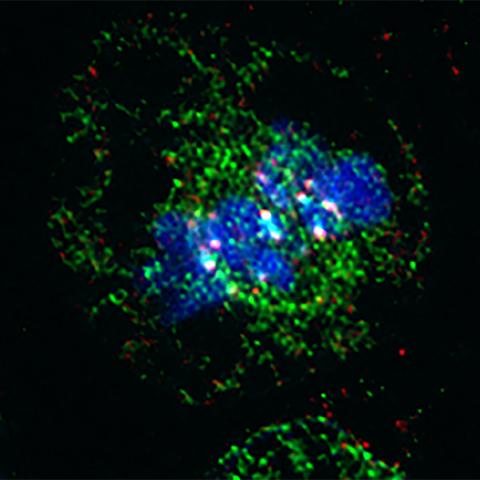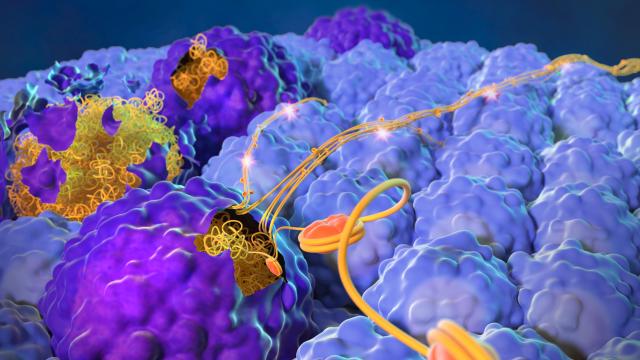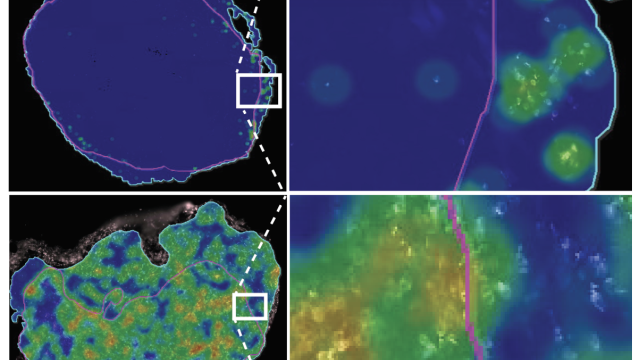
During cell division, chromosomes (blue) must be aligned properly with one another. Once this occurs, the protein CLR4 combines with another to form a complex called RBBP7 (green), signaling the end of the DNA synthesis process.
CREDIT: Dr. Sangmin Jang (NCI) and Dr. Fred E. Indig (NIA).
New research reveals the way in which a key protein in cells, CLR4, influences cell division. The results hint at a potential way to boost the efficacy of a commonly used chemotherapy drug, paclitaxel, in cancers that have become resistant to the drug.
Cancer cells tend to divide and multiply quickly, which is why chemotherapy drugs such as paclitaxel are designed to interfere with the mechanisms of cell division.
Recently, researchers at the Developmental Therapeutics Branch (DTB) of CCR discovered that a protein, RepID, acts as a switch for the creation of new DNA during cell division. Their research suggested that RepID recruits another protein, CLR4, to facilitate the process.
In the latest study, published January 7, 2020, in Nature Communications, Mirit Aladjem, Ph.D. Senior Investigator in the DTB, with Steve Cappell, Ph.D., Stadtman Investigator in the CCR’s Laboratory of Cancer Biology and Genetics and their colleagues uncovered another role of CLR4, showing that once the chromosomes of a newly divided cell are aligned, CLR4 binds with a different protein to help complete the DNA synthesis process. They also showed that cells depleted of RepID, and thus CLR4, are more sensitive and likely to die when exposed to paclitaxel.
Aladjem says her team plans on further studying the mechanisms of RepID and CLR4, and how manipulating these protein switches could affect the sensitivity and resistance of cancer cells to chemotherapy drugs like paclitaxel.


